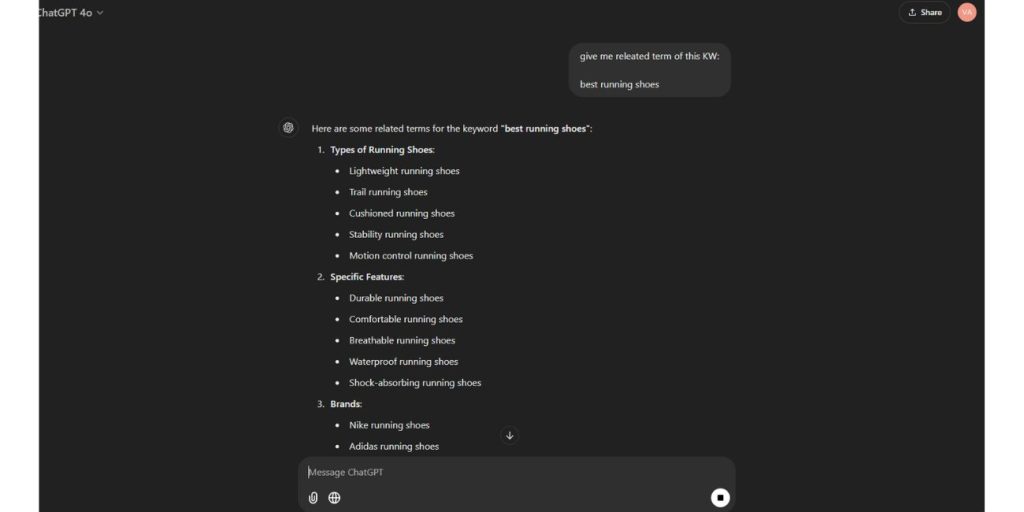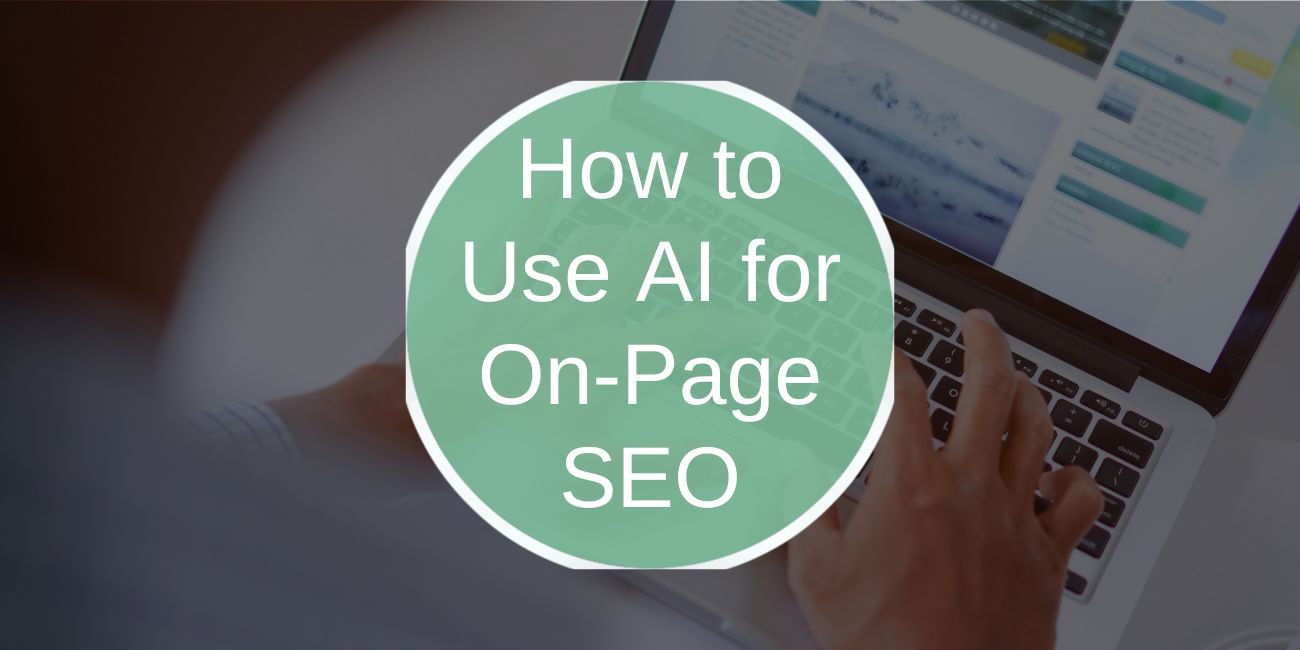On-page SEO is essential for improving your website’s visibility and attracting organic traffic. By optimizing elements like keywords, meta tags, internal links, and content structure, you ensure your site meets user expectations and search engine requirements. AI tools have made this process more efficient, helping businesses save time, analyze data, and apply insights to improve rankings. Let’s explore how AI can enhance on-page SEO.
Why AI is a Game-Changer for On-Page SEO
AI simplifies and streamlines the often tedious tasks of on-page SEO. By analyzing large datasets quickly, it identifies opportunities for improvement and offers actionable recommendations. These tools help optimize websites to align with search engine algorithms, ensuring better performance and higher rankings.
AI’s benefits include time savings, detailed data insights, and improved content quality. Tasks that once required hours of manual effort, like keyword research or meta tag optimization, can now be automated without compromising accuracy or depth.
Key On-Page SEO Elements AI Can Optimize
AI excels in optimizing several crucial aspects of on-page SEO, bringing speed and precision to tasks that require detailed attention.
1. Keyword Research and Placement

Keywords are at the heart of SEO, and AI tools like SEMrush and Clearscope make it easier to find the right ones. These tools analyze search trends, competition, and user behavior to recommend high-ranking terms and long-tail keywords. They also help you understand where and how to integrate keywords naturally into your content for maximum effectiveness.
Example: Instead of just using “best running shoes,” AI might recommend related terms like “top-rated running shoes for beginners” to broaden your reach and improve search rankings.
2. Meta Tags (Titles and Descriptions)
Meta titles and descriptions are vital for improving click-through rates (CTR). AI tools can automatically generate optimized tags based on your target keywords, ensuring they are both engaging and aligned with user intent. A well-crafted meta description can make your page stand out in search engine results, encouraging users to click.
Example: Instead of manually writing a description, an AI tool can suggest something like, “Find the best running shoes for every need. Top-rated options for comfort, performance, and durability.”
3. Content Structure and Readability
The way your content is organized directly affects user engagement. AI tools like Grammarly and Jasper AI ensure your content is easy to read by suggesting improvements in sentence structure, tone, and formatting. For instance, they might recommend breaking up long paragraphs or adding subheadings to improve scannability.
Example: If you’re writing about “running shoe reviews,” AI might suggest linking to a related blog post about “how to choose the right running shoes.”
4. Internal Linking

Internal links help users navigate your site and signal to search engines how your pages are related. AI tools identify opportunities for internal linking, ensuring a seamless user experience and improved page authority. These tools analyze your site’s structure and recommend links that enhance navigation while supporting SEO efforts.
AI tools also offer significant advantages for businesses focusing on local search visibility. For companies providing local SEO services, AI can analyze location-specific keywords and recommend optimal placement within your content. These tools ensure your on-page elements, such as meta tags, internal links, and image alt text, are tailored to attract local audiences. By leveraging AI-driven insights, businesses can improve their local search rankings and connect more effectively with nearby customers.
5. Image Optimization
AI simplifies image optimization by compressing file sizes, generating alt text, and renaming files with SEO-friendly terms. This not only improves load times but also ensures that your images contribute to your website’s accessibility and search rankings.
Example: A tool like SEMrush can rename your image from “IMG1234.jpg” to “best-running-shoes-2024.jpg” and suggest alt text like “Top running shoes for comfort and durability.”
Top AI Tools for On-Page SEO
Using the right tools is crucial to leveraging AI for on-page SEO. Here are some of the best options:
- Surfer SEO: Helps optimize keyword density, content structure, and word count.
- Jasper AI: Generates high-quality, SEO-friendly content based on your target keywords.
- SEMrush On-Page SEO Checker: Provides actionable suggestions to improve website performance.
- Clearscope: Aligns content with user intent by analyzing top-ranking pages.
- Screaming Frog SEO Spider: Audits your website for technical on-page issues like broken links and duplicate content.
How AI Enhances Content Optimization
AI brings advanced technologies like Natural Language Processing (NLP) into the realm of SEO. NLP allows AI tools to understand the context behind user queries and align content accordingly. This ensures your website meets search intent, which is critical for improving rankings.
Additionally, AI tools analyze your content for readability, engagement, and relevance. They suggest updates for outdated content, ensuring your website stays fresh and continues to perform well. For example, if a blog post is no longer aligned with current trends, AI might recommend updating statistics, replacing outdated examples, or adding new sections.
Automating On-Page SEO Tasks
AI simplifies many tasks that once took hours:
- Meta Tag Generation: Quickly create SEO-optimized titles and descriptions.
- Schema Markup Suggestions: Add structured data like FAQ or product schema to enhance search appearance.
- Performance Tracking: Use AI dashboards to monitor metrics like keyword rankings, CTR, and bounce rates.
Common Challenges When Using AI for On-Page SEO
Despite its many benefits, using AI for on-page SEO comes with a few challenges. Over-optimization is one of the most common pitfalls. AI-generated suggestions can sometimes lead to unnatural keyword placements or overuse, which may hurt readability and user experience. Human oversight is critical to ensure content remains user-friendly and engaging.
Another challenge is the cost of premium AI tools. While they offer significant value, they can be expensive for small businesses or individuals. Starting with free trials or affordable options can help determine whether a tool is worth the investment.
Best Practices for Using AI in On-Page SEO
AI works best when it complements human expertise. Use AI to handle data-heavy tasks and provide insights, but rely on your creativity to refine content, ensure accuracy, and maintain brand voice. Focus on user intent by creating content that answers real questions and solves actual problems.
Additionally, keep track of your results. Regular audits and performance monitoring help you understand what’s working and where improvements are needed. This iterative approach ensures your on-page SEO efforts remain effective and aligned with evolving search engine algorithms.
Future Trends in AI and SEO
AI’s role in on-page SEO will only grow. Advanced NLP models, such as GPT-based tools, are becoming better at understanding context and user intent. Real-time personalization will enable websites to deliver tailored content based on user preferences, behavior, and location. Content management systems are also increasingly integrating AI, making optimization seamless and accessible.
By staying updated on these advancements, you can continue to leverage AI to improve your website’s performance and user experience.
Final Thoughts
AI has transformed how we approach on-page SEO, making it faster and more effective. From optimizing keywords to enhancing content quality, AI tools simplify the process while delivering valuable insights. However, these tools are best used as a complement to human creativity and judgment. By leveraging AI strategically, you can create engaging, user-focused content that performs well in search rankings

